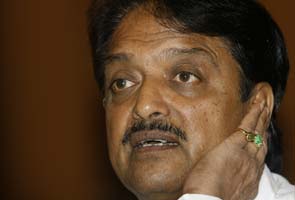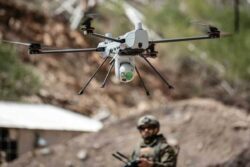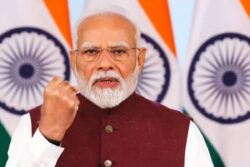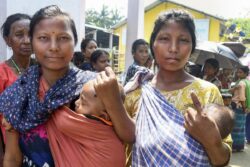Vilasrao Deshmukh, Congress leader and Union minister, dies in Chennai

Chennai/Mumbai: Vilasrao Deshmukh, the man who had once famously said, ‘I dream of turning Mumbai into a Shanghai’ has died in hospital in Chennai. Mr Deshmukh, Science and Technology Minister, had been diagnosed with liver cancer. He was flown by air ambulance from Mumbai to Chennai’s Global Hospital last week for a liver transplant, but then went through multiple-organ failure. He was 67.
 The former Maharashtra Chief Minister’s body will be taken to Latur tonight and last rites will be performed at 4 pm in Babhalgaon, his village in Latur.
The former Maharashtra Chief Minister’s body will be taken to Latur tonight and last rites will be performed at 4 pm in Babhalgaon, his village in Latur.
Mr Deshmukh was in the Chennai hospital for a week. Dr K Ravindranath, chairman of Chennai’s Global Hospitals, said Mr Deshmukh had been on the emergency list for a cadaver organ transplant but no donor was available when he was stable enough to have a transplant. The doctor said Mr Deshmukh was on ventilator support and died at 1.40 pm today. He is survived by his wife Vaishali, and three sons, Amit Deshmukh who is the MLA from Latur city, Riteish, who is a popular Bollywood actor, and Dheeraj.
State mourning is expected to be declared and the national flag will be flown at half-mast at tomorrow’s Independence Day celebrations. Parliament was adjourned as news of Mr Deshmukh’s death came in; he was a Rajya Sabha member. In the Lok Sabha, an emotional Leader of House Sushilkumar Shinde, announced the news and suggested that the House adjourn in a mark of respect. Mr Shinde, known to be have been close to Mr Deshmukh, was emotional as he spoke.
President Pranab Mukherjee and Prime Minister Manmohan Singh have condoled the senior minister’s death. Prime Minister Manmohan Singh said, “He was a senior Congress leader, a valued cabinet colleague and an able administrator. We will miss him in the government.”
Mr Deshmukh made the incredible journey from a village Sarpanch to one of the big players in the power corridors of Delhi.
The two-time Maharashtra chief minister was born in a family of landlords on May 26, 1945. After pursuing law from the Pune University, his first major political achievement came in 1974 when he became the Sarpanch of Babhalgaon in Latur district.
A successful stint with the Youth Congress propelled Mr Deshmukh to mainstream politics in 1980. Political experts said Mr Deshmukh’s astute and thorough knowledge about Maharashtra helped him rise through the ranks quickly.
In 1999, the Congress leader became the Maharashtra Chief Minister. Four years later, Mr Deshmukh was forced to make way for Sushilkumar Shinde, a prominent Dalit member of Congress and now the country’s Home Minister, due to internal wrangling in the Maharashtra Congress. But, it was only a year before Mr Desmukh took back the top post in Maharashtra for his second term.
The 26/11 Mumbai attacks, however, cost Mr Deshmukh much. Already facing heat over the shocking attacks, Mr Deshmukh had to resign after public outrage over him being seen walking in to inspect Mumbai’s iconic Taj Hotel, one of the places the terrorists had targeted, with his son and actor Riteish and film director Ram Gopal Verma.
In the next few years, Mr Deshmukh got embroiled in several more controversies that hit the state. There were allegations of land grab and attempt to shield a politician’s family from the police, and then of involvement in the Adarsh scam and the former chief minister’s public image took a battering.Vilasrao_Deshmukh_tying_turban_295x200.jpg
The one highpoint was his induction as a union minister and then his appointment as the President of the prestigious and cash-rich Mumbai Cricket Association.
Mr Deshmukh looked forward to a return to Maharashtra politics. Every time there was controversy over the issue of Chief Minister in the state that the Congress rules with the NCP, Mr Deshmukh’s name would crop up prominently. Mr Deshmukh, known for his administrative skills and good relations cutting across party lines, always had an opportunity.
In his long career as a politician, he held portfolios like Science and Technology, Home, General Administration, Cooperation, Public Works, Transport, Legislative Affairs, Tourism, Agriculture, Animal Husbandry, Dairy Development Fisheries, Industry, Rural Development, Education, Technical Education, Sports and Youth Welfare.





